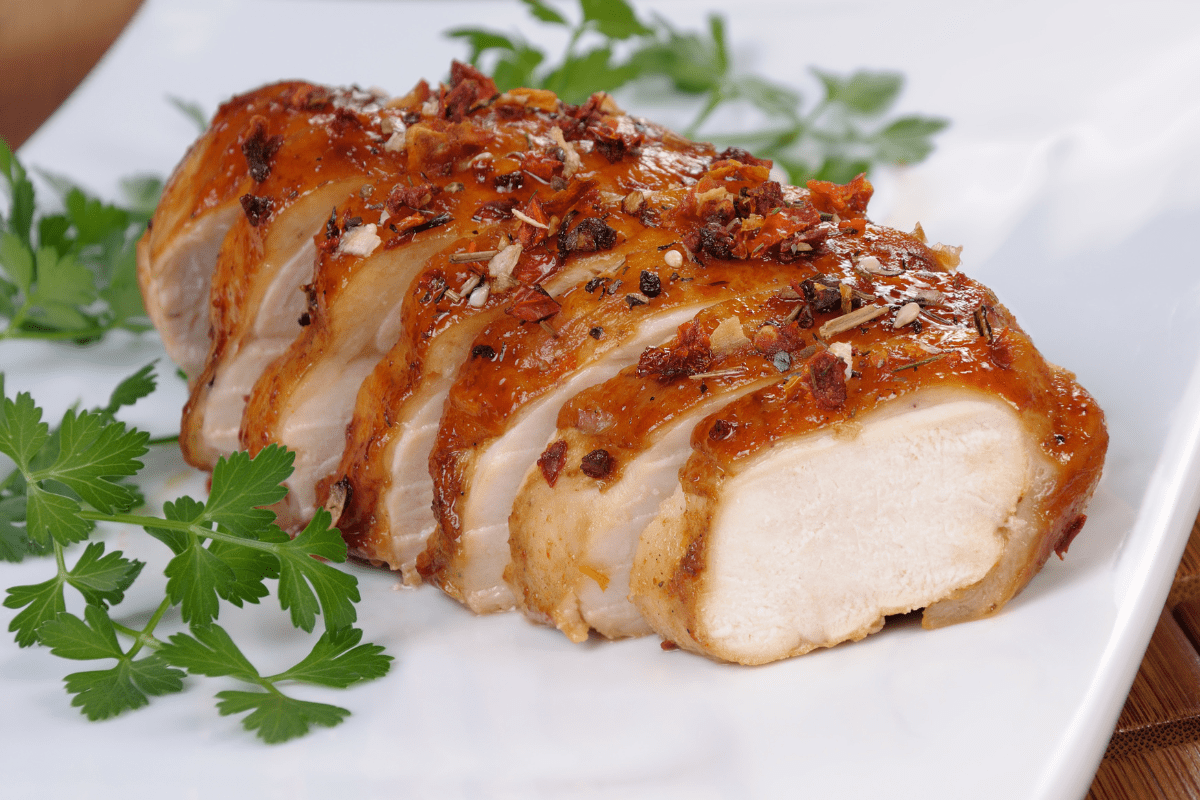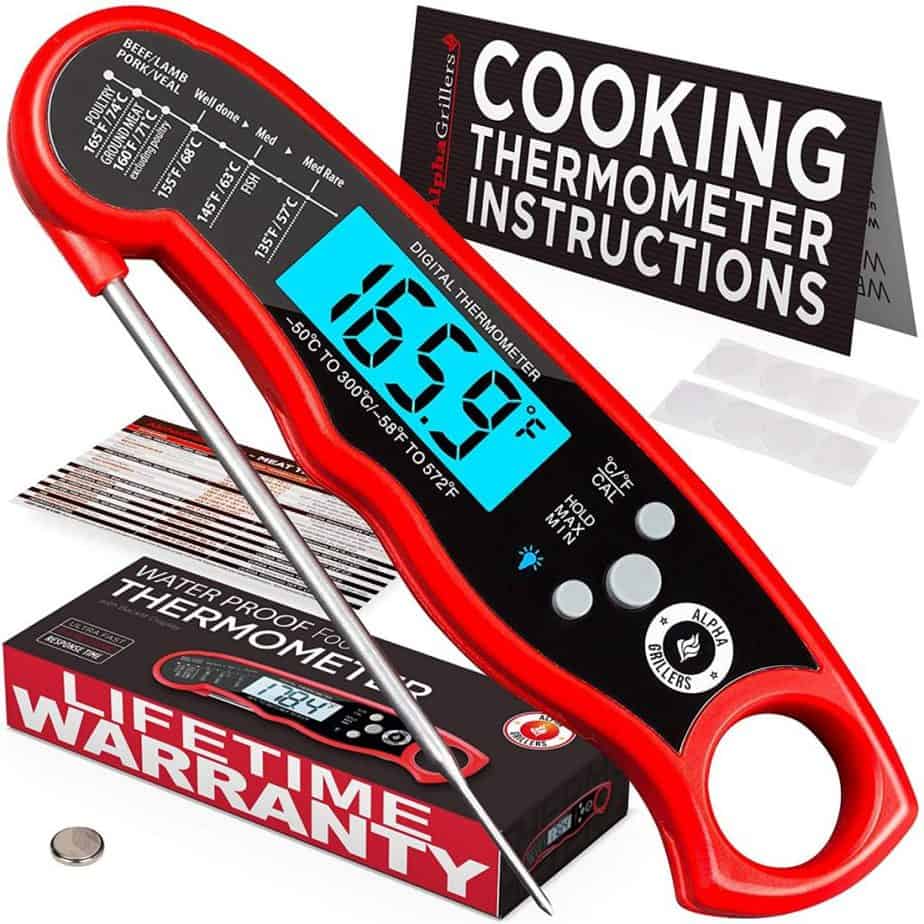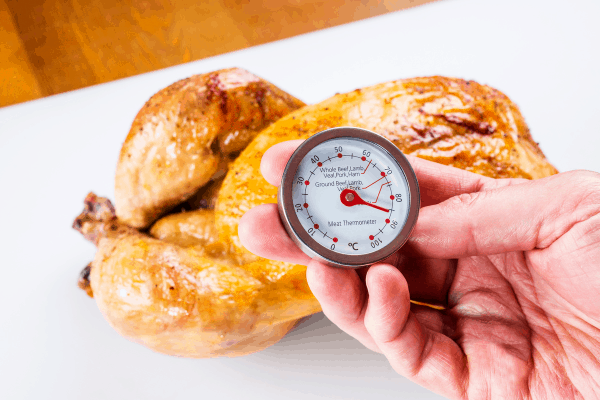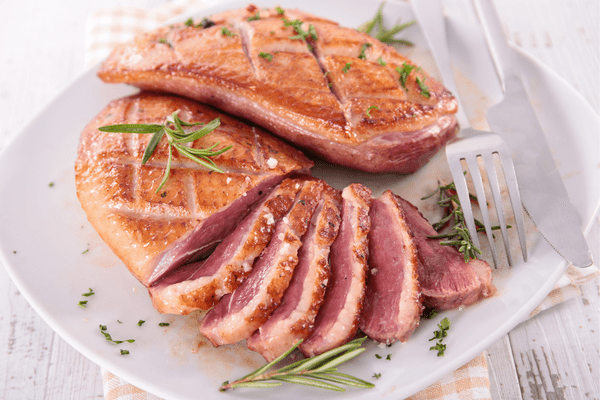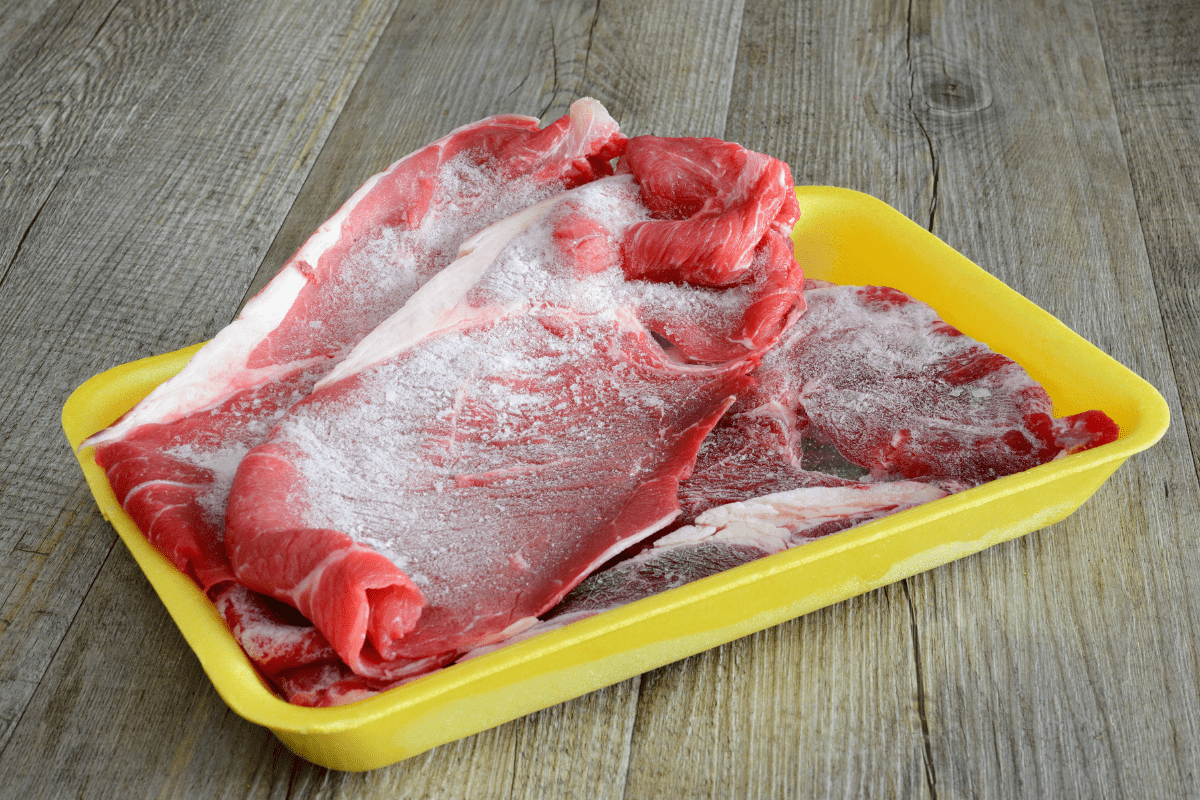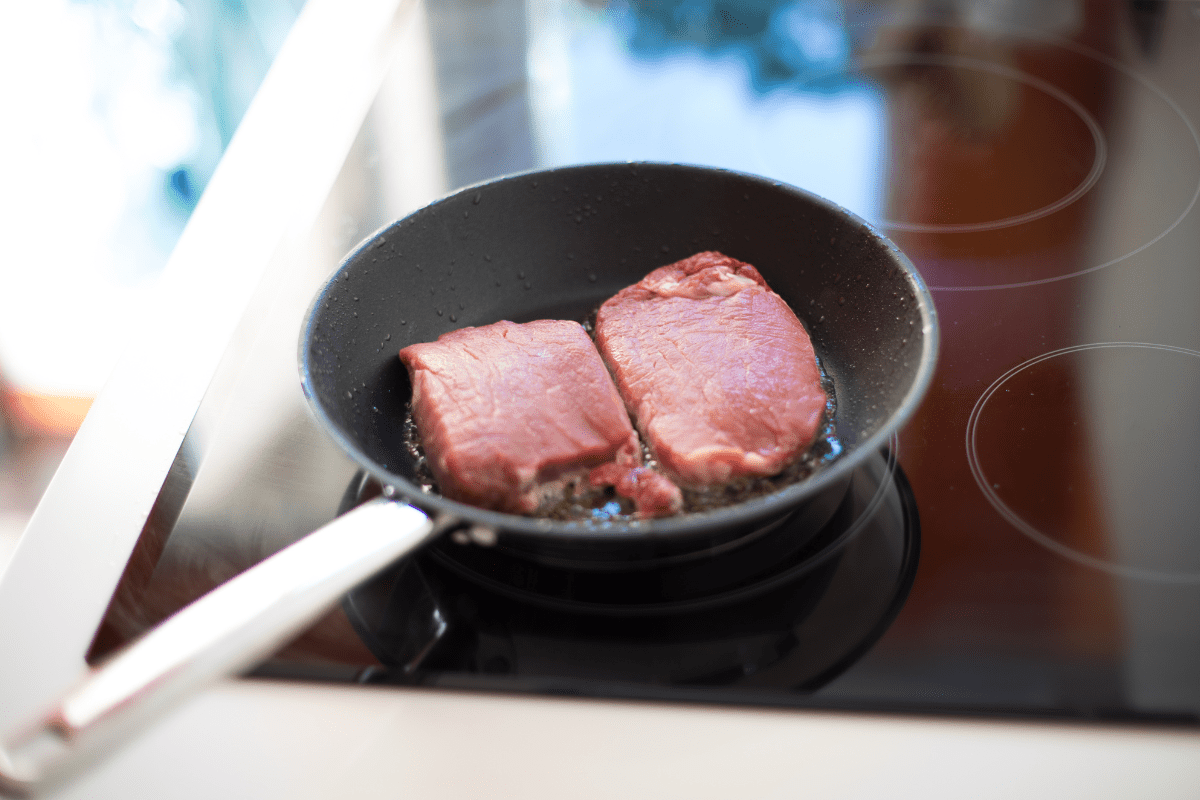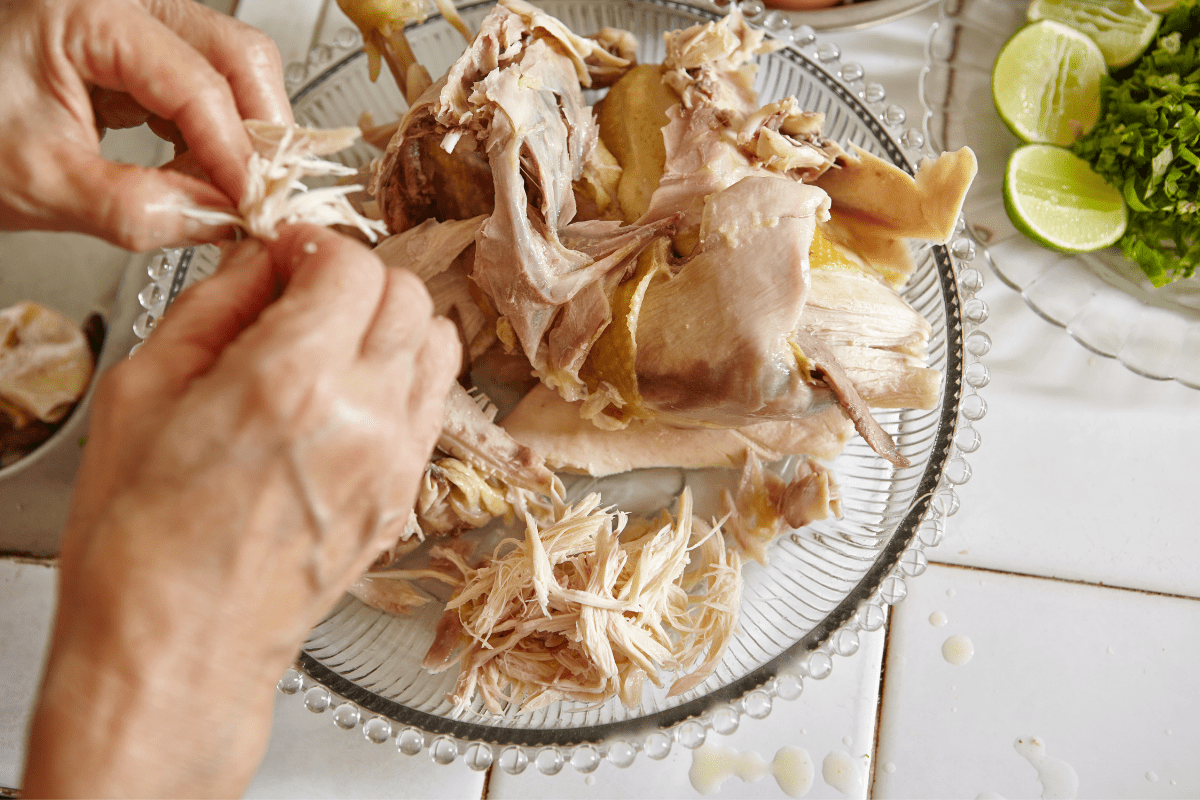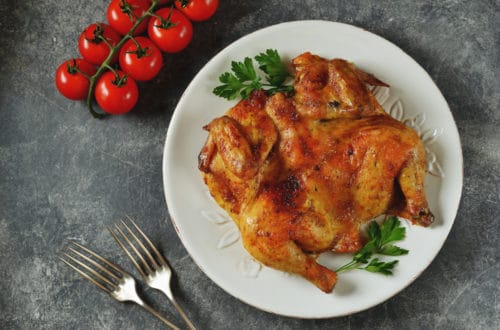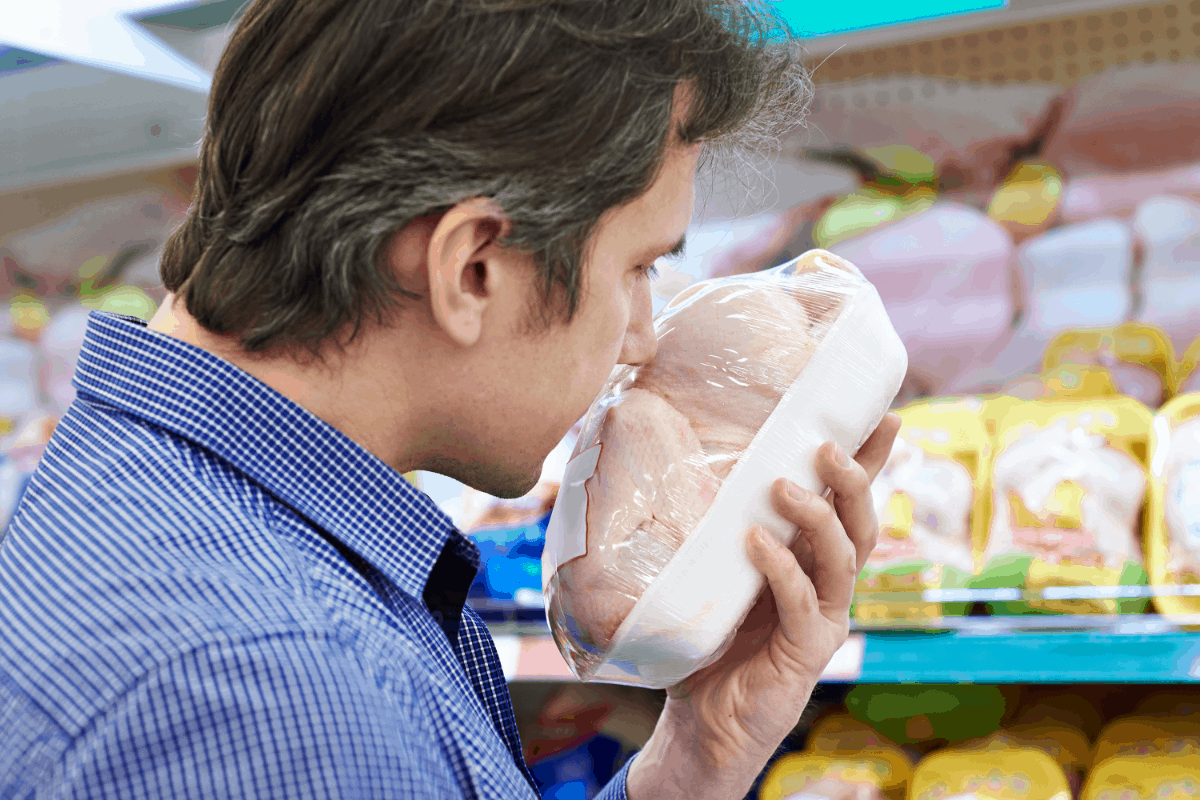Do you find that when you cook chicken breasts they always seem to end up being dry?
Well we aim to stop that from happening by offering you some simple cooking tips and techniques that will prevent you from having dry overcooked chicken breasts ever again.
So why do Chicken Breasts become dry when cooked. Chicken Breast meat is very lean, and loses its natural moisture as it cooks. Removing the skin, and cooking for too long, are the main reasons why your chicken will dry out. Cooking to an internal temperature of 160oF/75oC will ensure that any harmful bacteria are destroyed, whilst your chicken remains moist and juicy.
There are some other things you can do in the preparation and cooking of the breast, to cut down the chances of ending up with dry chicken. We will look at these in detail below.
This article may contain affiliate links to products we recommend. If you make a purchase using these links we may be paid a fee by the supplier at no additional cost to you.
Allow Chicken Breast To Reach Room Temperature
Prior to cooking the chicken breast, you should remove them from the refrigerator about 20 minutes before you need to start cooking them.
When you cook the chicken straight out of the refrigerator, it needs to cook for longer to allow the cold centre to get up to a high enough temperature to kill any bacteria. This longer cooking means that the outside of the chicken becomes overcooked and dry.
Allowing the meat to come up to room temperature will ensure that the meat cooks evenly throughout.
All meat should be allowed to reach room temperature prior to cooking, not just chicken!
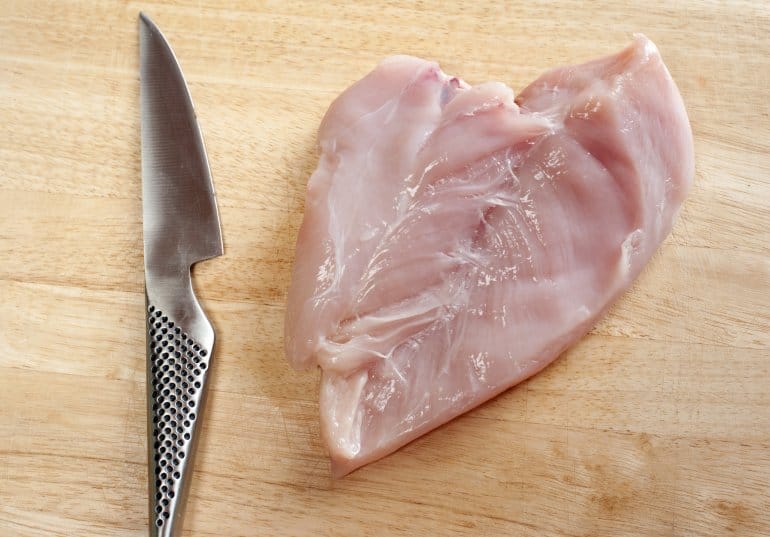
Butterfly or Pound Your Chicken Breast To Uniform Thickness
The natural shape of a boneless chicken breast, is plump and thick at one end, tapering down to a thinner end.
When cooked in this shape, the thinner end is obviously cooked sooner than the thicker end, and will become dry and overcooked, waiting for the thick end to get up to a safe temperature.
To prevent this from happening, butterflying or pounding the chicken breast will make it a uniform thickness that will cook at the same time.
How to Butterfly a boneless chicken breast
- Lay the boneless chicken breast flat on the cutting board
- Place your hand on the top of the chicken breast to hold it in place
- Using a sharp knife, cut along one edge of the breast slicing almost all the way through.
- Stop cutting about 2cm from reaching the other side.
- Open up the partially cut chicken like to would open a book
- The chicken breast will now be twice the size but half the thickness
Doing this with your chicken breast will not only ensure even cooking throughout the meat, but will also cut down the cooking time due to the meat now being thinner.
Pounding Your Boneless Chicken Breast
- Follow the steps above to create a butterflied chicken breast
- Lay the butterflied chicken breast between parchment paper, Cling wrap or inside a ziplock bag
- Using a rolling pin or meat hammer, gently pound the chicken breast to the desired thickness
Pounding the chicken breast is not always necessary, however it is often done when making chicken cutlets, chicken escalopes etc, and will also help to tenderize the meat.
Here is a video on how to butterfly and pound a boneless chicken breast
Leave The Chicken Breast Skin On During Cooking
Although we are constantly told about the health issues regarding eating chicken skin, it is beneficial to leave it on during the cooking process.
The fats within the skin will naturally baste the meat during cooking, adding flavor, and preventing the meat from drying out.
If you are concerned about the health aspect, you can always remove the skin after cooking.
Use a Digital Food Probe For Perfectly Cooked Chicken Breasts
The number on reason that your chicken breast turn out dry is due to overcooking.
We are all so concerned with the possibility of getting sick from eating undercooked chicken, that we tend to overcompensate and cook the meat for much much longer than is required.
The recommended internal temperature for chicken to be cooked to a point where there is no risk of getting sick from harmful bacteria is 165oF/75oC.
A visual inspection of the meat juices and color, is not a safe or recommended way of determining whether your chicken is cooked.
This internal temperature can be easily and instantly measured using a digital food probe. These probes can be purchased for under $20, and will be one of the most helpful gadgets in your kitchen, for ensuring safe and perfectly cooked food. Here is a link to Amazons best selling digital probe.
Again, a digital probe will allow you to cook all meat perfectly, as it will let you know when the meat has reached a safe temperature to remove from the heat and prevent overcooking.
Use The Tent Method For Cooking Juicy Chicken Breasts
If you are cooking the chicken breast without the skin, then you will want to provide a barrier between the heat and the flesh of the chicken, to prevent it from becoming dried out.
Loosely covering the chicken with parchment paper or foil will help to keep the natural juices trapped within the breast, rather than allowing them to escape and evaporate.
Allow The Chicken Breast To Rest After Cooking
Once the chicken has reached an internal temperature of 165oF/75oC, and you remove it from the heat, you will want to allow the meat to ‘rest’ for another 10 minutes.
Resting the meat simply means leaving it loosely covered with parchment or foil before carving or cutting into the meat.
Resting allows all the natural moisture within the chicken, to settle back into the meat fibres. This will keep the meat moist and juicy when you come to eat it.
If you cut into the meat before these juices have been absorbed back into the flesh, those juices will pour out onto your cutting board and the meat will be dry.
DO NOT skip this step! It is easy to become impatient once the meat has cooked, and you will be tempted to cut straight into the chicken. Do not give in to temptation, allow the chicken to rest. It will be worth the extra few minutes wait I assure you.
Add A Sauce To Save Overcooked Dry Chicken Breast
If you find yourself having some dry cooked chicken breast, then simply prepare a quick sauce to pour over the meat and add moisture and flavor.
Just because the chicken has turned out dry does not mean that it cannot be enjoyed.
Here is a video of how to make quick pan sauces
Hopefully these tips have given you the tools and knowledge required to no longer overcook and suffer dried out cooked chicken breasts. With a few simple changes to your preparation, you can enjoy moist and juicy chicken breasts every time.
